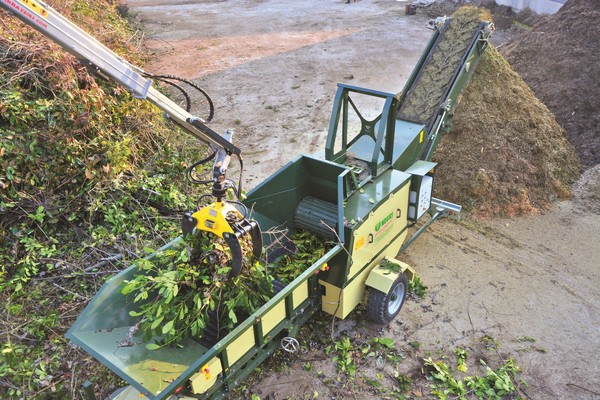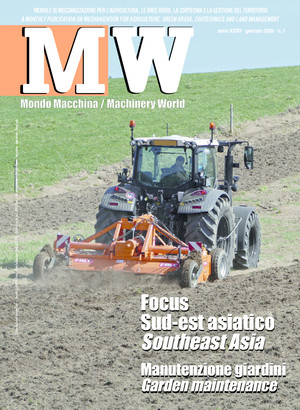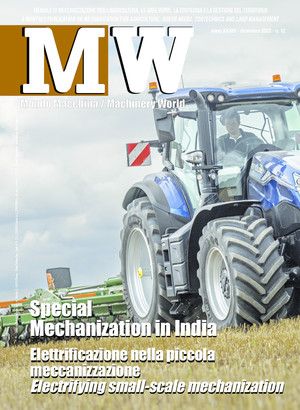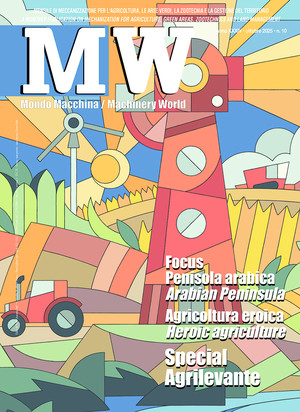
The Itabia Focus on agribusiness and the circular economy
The circular bio-economy and agro-energy have a central role to play in the primary sector. Technological innovation, enhancement of land resources, recovery of by-products and renewable sources can mitigate climate change. These are the topics at the centre of the seminars and technical visits promoted by Itabia at Agrilevante, with a special focus on the all-round enhancement of biomass resources
Agrilevante 2023 will dedicate to the bioeconomy and the promising related supply chains (industrial and energy) a space commensurate with the development potential of this innovative sector in Puglia and the entire Mediterranean area. Today more than ever, the primary sector plays a central role in driving the Green Deal turnaround, orienting a vast slice of production systems (modern and traditional) towards concrete and far-reaching forms of sustainability.
Through technological innovation, the enhancement of land resources, the recovery of by-products and the use of renewable sources, operators in the agricultural sector can in fact help mitigate climate change and promote the desired transition from a linear to a circular economy. Agriculture in its innumerable facets - from the highly technological and digitised precision agriculture to the heroic agriculture of terraces or marginal lands - is increasingly establishing itself as an indispensable tool for ensuring social welfare and environmental protection. It is therefore no coincidence that the "farmer" as well as the "woodsman" are increasingly explicitly assigned the role of environmental sentinel. This role must however be supported with active policies, guiding choices, incentivising production chains, transferring know-how and - above all - stimulating young entrepreneurs and technological modernisation. ITABIA will talk extensively about these issues during the Agrilevante Fair, where it will organise several themed seminars and technical visits on the theme of the circular bio-economy and agro-energy. And it is precisely in order to stimulate maximum involvement of stakeholders in the sector, that ITABIA has established a strong synergy with the Agriculture Department of the Puglia Region to divulge, the results of some virtuous initiatives, financed with European and regional public resources, which will be presented in the setting of the Bari exhibition.
VENERE, an acronym for Energetic and agronomic exploitation of pruning residues, is a project aimed at activating a pilot supply chain (Measure 16 of the Apulia RDP) for the energetic exploitation of pruning. Using pruning residues for the production of energy not only makes it possible to eliminate a source of pollution - the uncontrolled burning of vegetable waste - and to have an energy source available to replace fossil fuels, but also to promote a model of "distributed" micro-generation (small plants serving on-site consumption) and to stimulate a productive expasion by farms, activating inter-sectoral collaboration within the supply chain processes. Furthermore, thanks to the energy exploitation of prunings, it is possible to reduce energy costs and also improve consumption efficiency. The energetic exploitation of plant waste also has another advantage, since through the pyrolytic process it is possible to obtain a carbonaceous residue (biochar) which, in addition to being used as a soil conditioner, performs the important function of storing carbon in the soil.
Eco For Act is a project aimed at enhancing the ecosystem services of the Monti Dauni forests in the Forest Contract. Financed by measure 16 of Puglia's 2014-2020 RDP, Eco for Act aims to consolidate the forest economy and related entrepreneurship through sustainable and multifunctional development models. Thanks to the implementation of the forest-wood-energy supply chain and the multifunctional aspects of forest areas, active forest management can represent an important tool for supplementing agricultural income and an employment multiplier. At Agrilevante, examples of best practices developed within the H2020 BRANCHES project will be presented.
RuralBioUp is a project with which the European Commission is funding (Horizon Europe Programme - Circbio) the creation of regional hubs to stimulate discussion between stakeholders in the bioeconomy sector. The aim is to define a detailed action plan with which to identify two successful supply chains to focus on through the tools of knowledge transfer, technical visits, training courses and positive lobbying activities. In this project involving 12 partners representing 9 European countries (Italy, Austria, Estonia, France, Ireland, Lithuania, Portugal, Czech Republic, and Romania), Apulia will be the first region to bring together its Hub for two days of workshops with renowned experts on Agro-energy (bio-energy and agri-voltaics), innovative technical means in agriculture (biofertilisers and active biomolecules), minor crops for the bio-economy, and forestry mechanisation (afternoon of Thursday 5 and morning of Friday 6).
Agri-Culture, a project financed with NRRP funds, will be presented at Agrilevante by the Associazione Chimica Verde Bionet, already the promoter of the Capraia Smart Island initiative. This initiative, which was awarded the Mediterranean Blue Islands Award by the European Commission in 2023, is launching - with 'Agri-Culture' - a new project aimed at activating development policies on the island of Capraia to relaunch the territory and agricultural traditions. Among the various actions in the pipeline are the implementation - already underway - of the first Biological District on a minor Mediterranean island, and the enhancement of the local gastronomic culture through the recovery of food and cultural traditions, with the aim of eventually creating a Capraiese Historical Cookbook (morning of Saturday 7).
The packed calendar of initiatives promoted by Itabia at Agrilevante also includes a technical visit to the Prosvolta farm in Gioia del Colle (BA), where an agri-voltaic plant with a capacity of around 1 MW is operating on about 2 hectares of vineyards. Nicola Mele, the entrepreneur who helped set up the company, reconciles energy production from renewable sources with agricultural production. With this in mind, he monitors the system with studies conducted by Maurizio Boselli, former professor of viticulture at the University of Verona, and Giuseppe Ferrara, professor of arboriculture and fruit growing at the University of Bari. A bus will take visitors from the Fiera di Bari to the plant with return expected by 18:00 (afternoon on Friday 6).
Itabia's info point is located in Hall 19 (Desk Area), while the demo area where wood-energy machines will be put into operation will be set up in the outdoor forecourt in front of Hall 20 (Area 47 Bioenergy). The workshops scheduled from Thursday 5 to Saturday 7 October will instead be held in the Congress Centre (Room 5).








